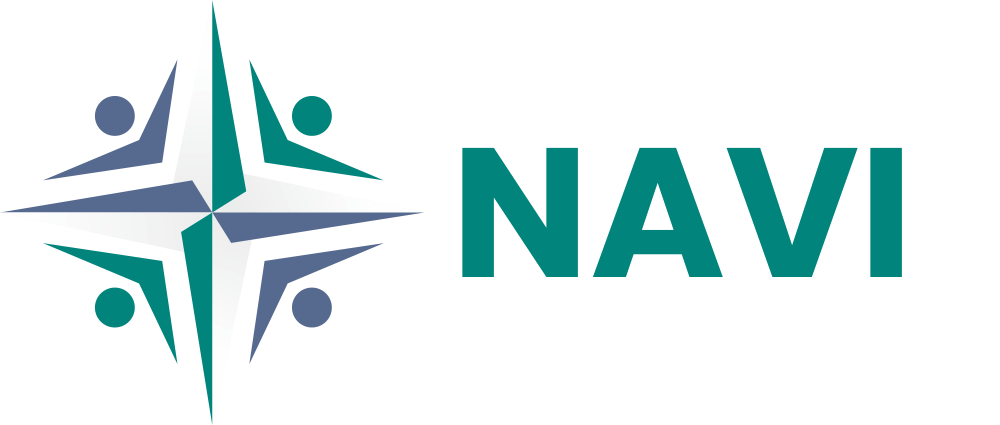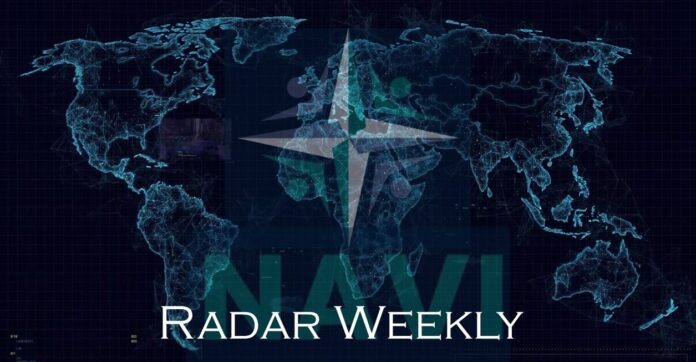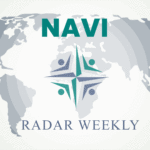Focus Point: Security and Defense Policy-Defense Discussions
Munich Security Conference: Munich Security Report 2024 by MSC
12.02.2024 Lose-Lose?
The Munich Security Report 2024 explores the lose-lose dynamics that are spurred if ever more governments prioritize relative payoffs rather than engage in positive-sum cooperation and invest in an international order that, despite its obvious flaws, can still help grow the proverbial pie for the benefit of all. The report also stimulates the debate on how the transatlantic partners and like-minded states can balance two difficult requirements: bracing for a much more competitive geopolitical environment, where relative-gains thinking is unavoidable, and reviving the type of cooperation without which more inclusive global growth and solutions to pressing global problems can hardly be attained.
Amid growing geopolitical tensions and rising economic uncertainty, many governments are no longer focusing on the absolute benefits of global cooperation, but are increasingly concerned that they are gaining less than others. Prioritizing relative payoffs may well spur lose-lose dynamics – jeopardizing cooperation and undermining an order that, despite its obvious flaws, can still help grow the proverbial pie for the benefit of all.
The transatlantic partners and like-minded states now face a difficult balancing act. On the one hand, they have to brace for a much more competitive geopolitical environment, where relative-gains thinking is unavoidable. On the other hand, they have to revive positive-sum cooperation, without which more inclusive global growth and solutions to pressing global problems can hardly be attained.
In absolute terms, the period after the Zeitenwende brought about by the end of the Cold War was a story of success. The risk of great-power war seemed remote, multilateral cooperation flourished, democracy and human rights spread, and global poverty declined. The open, rules-based international order that emerged allowed the “pie” of global prosperity to grow substantially. The contemporary Zeitenwende, however, points in a different direction, as pessimism has crowded out the optimism of the early post-Cold War era. Amid increasing geopolitical rivalry and a global economic slowdown, key actors in the transatlantic community, in powerful autocracies, and in the so-called Global South have become dissatisfied with what they perceive to be an unequal distribution of the absolute benefits of the international order. From the perspective of many developing states, the international order has never delivered on its promise to grow the pie for the benefit of all. China, perhaps the biggest beneficiary of the liberal economic order, and other autocratic challengers feel that the United States is curtailing their legitimate aspirations and are forcefully pushing for an even bigger share of the pie. And even the traditional custodians of the order are no longer satisfied, as they see their own shares shrinking. In fact, people in all G7 countries polled for the Munich Security Index 2024 expect China and other powers from the Global South to become much more powerful in the next ten years, while they see their own countries stagnating or declining. As more and more states define their success relative to others, a vicious cycle of relative-gains thinking, prosperity losses, and growing geopolitical tensions threatens to unroll. The resulting lose-lose dynamics are already unfolding in many policy fields and engulfing various regions. MSC
Focus Point: Security and Defense Policy-Defense Discussions
Munich Security Conference: Munich Security Index 2024 by MSC
12.02.2024 Munich Security Index 2024- is published as a part of MSC Report 2024 today! Munich Security Index 2024 With the Munich Security Index (MSI), the MSC and Kekst CNC together have built a data set to explore citizens’ risk perceptions in the G7 and BRICS nations. By combining five metrics – overall risk, potential damage, expected trajectory, perceived imminence, and feelings of preparedness – the core index, underpinned by a survey of 1,000 people per country, provides annual insights into how major countries view risk. With the first edition of the index published in 2021, the index also enables an evaluation of how risk perceptions change over time. Apart from the core index of risks perceptions, the MSI also includes a set of additional questions relevant to security policy that may vary from year to year.
Since 2022, the MSC and Kekst CNC have not polled in Russia and instead have polled in Ukraine. For the Munich Security Index 2023, the full index was polled in Ukraine; for the Munich Security Index 2024, a survey with selected questions was conducted in Ukraine.
Following last year’s record-high threat perceptions, the Munich Security Index 2024 registers aggregate decreases in 21 risk indicators, while ten indicators saw overall increases. The threat from Russia and related risks – including the use of nuclear weapons by an aggressor and energy supply disruptions – still rank considerably higher than in 2021, but compared to last year, they have dropped in the risk index. Meanwhile, perceptions of nontraditional risks remain high. People around the world continue to be most concerned about environmental threats, while risk perceptions of mass migration as a result of war or climate change, radical Islamic terrorism, and organized crime have heightened. MSC
Focus Point: Security and Defense Policy-Defense Discussions
The Military Balance 2024: An indispensable open-source assessment of the military forces, personnel numbers, equipment inventories and defence economics of over 170 countries by IISS
13.02.2024 Threats to the rules-based order have intensified over the past year, prompting governments to reassess security priorities, defence spending and equipment plans. They have also raised concerns about defence-industrial capacities and driven the realisation that modernisation efforts need to balance maintaining traditional capacities, such as artillery, with embracing newer technologies, such as uninhabited systems and high-speed weapons. The deteriorating security environment is exemplified by mounting conflicts – such as the Hamas–Israel war, Russia’s continued aggression against Ukraine, and Azerbaijan’s takeover of the Nagorno-Karabakh region; coups in Niger and Gabon; China’s more assertive manoeuvres around Taiwan, in the South China Sea and elsewhere; and attacks on critical national infrastructure, including a gas pipeline and data cables in the Baltic Sea. The Military Balance 2024 captures these developments and how they are influencing defence budgets and equipment inventories. Russia has lost over 2,900 main battle tanks since launching its full-scale war on Ukraine, about as many as it had in active inventory at the outset of the operation. Moscow has been able to trade quality for quantity though, by pulling thousands of older tanks out of storage at a rate that may, at times, have reached 90 tanks per month. Russia’s stored equipment inventories mean Moscow could potentially sustain around three more years of heavy losses and replenish tanks from stocks, even if at lower technical standard, irrespective of its ability to produce new equipment. Ukraine also has suffered heavy losses, though Western replenishments have allowed the country to broadly sustain its inventory size while upgrading equipment quality. The situation underscored a growing feeling of a stalemate in the fighting that may persist through 2024. Russia’s aggression spurred European countries to boost defence spending and has strengthened NATO, with Finland adding combat power and experience in societal-resilience plans. NATO member states’ defence spending, dominated by the United States, has risen to about 50% of the global total. Adding the defence budgets of China, Russia and India brings the collective total to more than 70% of global military spending.
Although several European countries are spending more, the extra money is often going to fix old problems and is somewhat eroded by high inflation. The pace of ammunition expenditure in the war between Russia and Ukraine has also caused a reckoning in the West that production capacities have atrophied, with countries scrambling to rectify shortcomings from years of underinvestment and a misplaced focus on just-in-time rather than just-in-case. The war in Europe has left its mark in other ways, too. Ukraine’s use of inexpensive uninhabited maritime vehicles (UMVs) to target Russia’s Black Sea Fleet has given others greater urgency in pursuing such equipment; this year UMVs feature in The Military Balance for the first time. And while uninhabited aerial vehicles (UAVs) have been a staple of modern armed forces for some time, recent conflicts have demonstrated the utility of a far greater range of such systems, such as direct-attack munitions, quadcopters, and more traditional medium- and high-altitude platforms. Demand has spurred a wave of export deals, with Turkiye and Iran providing UAVs to various actors. Elsewhere, China is upgrading its strategic forces. It continues work on the DF-27 (CH-SS-X-24) intermediate-range ballistic missile armed with a hypersonic glide vehicle aimed at overcoming missile defences. Chinese efforts to turn the People’s Liberation Army into a power-projection force also advanced. The navy exercised closer to Guam and, with Russian vessels, near the coast of Alaska. The country’s third and most capable aircraft carrier, the Fujian (Type-003), neared sea trials. Meanwhile, China sent an alleged spy balloon across the US (it was downed by a US Air Force F-22 Raptor).
hina demonstrates why The Military Balance’s focus on forces and equipment in this, its 65th edition, remains a key element of assessing state power. Nevertheless, The International Institute for Strategic Studies continues to expand its research focus to capture developments in areas such as cyber, artificial intelligence and defence-industrial capacity to capture these increasingly important qualitative factors shaping conflict. IISS
Focus Point: Security and Defense Policy- Russia-Ukraine War
Can Europe hold the line on Ukraine? by FPRI
13.02.2024 Bottom Line
- Few in Moscow or Washington believe that Europe can hold the line and help Ukraine resist the Russian onslaught without US assistance. Yet this view may be mistaken.
- European countries demonstrated impressive resilience in withstanding Russia’s energy blackmail last winter. Building on this success, an emboldened, determined Europe could enable Ukraine to resist, even as the US government remains paralyzed.
- Russia’s invasion of Ukraine shattered Europe’s sense of security in a way that it has not for the United States. So, just as America’s resolve has diminished steadily over the last two years, Europe’s has only increased.
The uncertainty surrounding America’s aid package to Ukraine comes at a time when both Russian and Ukrainian militaries are exhausted following two years of intense combat. Neither side is likely to succeed in major offensive operations. Some Western analysts recommend that Ukraine temporarily adopt a more defensive posture, while learning from the 2023 offensive and preparing new strike capabilities. Holding the line under such conditions may be more feasible for Europe, which has been slow to ramp up its defense industry to meet the challenge.
But don’t count Europe out. Even if Congress remains paralyzed, a determined and mobilized Europe—including the European Union states and the United Kingdom—could hold off Russia and prolong a war that Vladimir Putin is desperate to win quickly, as he has been since February 2022. fprı.org
Focus Point: Regional Security- NATO
From Forward Presence to Forward Defense: NATOs Defense of the Baltics by RAND
14.02.2024 The will of the Baltic people to fight any potential occupation has remained steadfast since the war in Ukraine began in February 2022. According to a poll conducted by the Lithuanian Ministry of National Defense, between 2021 and end of 2022 Lithuanian will to resist by peaceful means grew from 51 to 61 percent, while 53 percent said they would engage in armed resistance. But, like NATO, Baltic leaders have a new focus on preventing an occupation in the first place in addition to building readiness to fight and resist behind enemy lines.
Estonia, Latvia, and Lithuania remain vulnerable to a potential Russian military attack due to their geography. The so-called Suwalki gap, a relatively narrow strip of land wedged in between Kaliningrad and mainland Russia that links Lithuania and Poland, is their only land access to the rest of NATO.
One Estonian defense expert expressed concern that NATO today is militarily weaker than it was prior to the Russian invasion of Ukraine because it has “given away a lot of ammunition and equipment,” donations that have not been fully replaced. Therefore, NATO and its member states need to ensure that they replenish the key capabilities required by the new regional plans as soon as possible, and that the plans meet the reality of available military power.
NATO’s new defense plans require capabilities that are still in the process of being procured and developed. So even as allies make commitments that will be in place in 2024–2026, they will need to sustain and renew these investments over the coming decade. RAND
Focus Point: Social, Economic & Security
Together in The Triple Transition of Geopolitics, Sustainability and Digitalization by Clingendael
15.02.2024 The Netherlands and the EU face major societal challenges which impact its international economic relations. Geopolitical rivalry, the sustainability and energy transitions, and digitalisation are impacting trade flows, investments and the earning potential of the Netherlands and Europe at large. Companies are calling with increasing urgency for the government to formulate a vision and an integrated approach to deal with these transitions. A regular and consistent dialogue with the business community about these transitions is crucial, but currently lacking. This adds to the already huge challenge of weighing the many different needs of various industries and businesses. An important starting point would be the exchange of knowledge and insights between businesses and the government regarding the green, digital and geopolitical transitions. Based on discussions and interviews with ten Dutch companies and business organisations, this paper offers guiding recommendations how to shape that strategic discussion and to develop a trusted space for conversation between government and businesses. This could lay the foundation for better-informed innovation policy, trade promotion and financing instruments that are suited to our current needs.
The dividing line between market and state is blurring, and economic security is replacing economic efficiency as the guiding principle for policy. This challenge is particularly large for the Netherlands, which traditionally has had a laissez-faire attitude. A dialogue between the private sector and the government is therefore all the more important. The recommendations outlined in this paper, which were formulated on the basis of interviews with various companies, trade associations and the government, offer starting points for such a dialogue. Now that globalisation is changing, this dialogue is more important than ever.Clingendael
Focus Point: Security and Defense Policy-Defense Discussions
Speaking Out: Why Retired Flag Officers Participate in Political Discourse by TSNR
Winter 2023-2024 Regardless, for scholars and practitioners who are concerned about the health of U.S. civil-military relations today — and who believe a norm against partisan non-involvement by retired officers is a key pillar of the military’s nonpartisan ethic more broadly — our findings are not reassuring.
Recent years have seen retired general and flag officers (in the US) make a variety of political statements and campaign endorsements, sparking enormous controversy and debate among scholars about the fate of the military’s norm of nonpartisanship. Despite this, we have relatively little information about how they actually view those actions and norms more broadly — whether and when they view it as appropriate to speak out on domestic political matters.
This article helps to fill that gap, through a unique survey of retired flag officers.
The study reveals that, while there is broad agreement on the existence and necessity of a norm against retired officers engaging in partisan speech, there are considerable differences in views about the applicability of the norm and justifications for violating it. In addition, we find that a variety of personal, normative, and ethical factors weigh heavily on whether retired military members engage in activism.
We evaluate these findings in the context of a novel framework for assessing norm robustness, concluding that norms against retiree political activism are heavily contested. tnsr.org
Focus Point: Security and Defense Policy-Defense Discussions
Germany’s Scholz wants European allies to up defense spending by Politico
17.02.2024 Germany is serious about boosting its defense spending in the long run and wants European allies to match its Ukraine aid, Chancellor Olaf Scholz said Saturday.
“One thing is crystal clear, we Europeans need to do much more for our security, now and in the future,” the German leader said on the second day of the Munich Security Conference. “Our readiness to do so is considerable.”
Scholz insisted the German government backed Ukraine and supported the creation of a credible deterrant against Russia.
The full-scale invasion of Ukraine has prompted a revolution in German military budgets, with Berlin increasing spending on its own underfunded military as well as sending money and weapons to Ukraine.
Scholz said some 80 percent of a special €100 billion fund for the German army had been committed.
Although Germany is the leading European country to aid Ukraine, it is still not sending Kyiv its Taurus cruise missiles — seen as adding crucial long-distance striking power to the Ukrainian military.
The issue was raised after his speech in Munich, but the chancellor called the question on whether his government would consider approving the missiles’ delivery in future as “strange.” Politico
Focus Point: Regional Security- NATO
NATO Secretary General attends the Munich Security Conference panel discussion, “In it to Win it: the Future of Ukraine and Transatlantic Security”: The world is more dangerous but NATO is stronger by NATO
18.02.2024 There is no imminent military threat to NATO but the Alliance never takes peace for granted, Secretary General Jens Stoltenberg said at the Munich Security Conference on Saturday (17 February 2024). “The world has become more dangerous, but NATO has become stronger,” said Mr Stoltenberg, citing record increases in Allied defence spending and ammunition production. On Ukraine, Mr Stoltenberg welcomed that European NATO Allies and Canada are stepping up aid to Kyiv, and warned that there is a “vital and urgent need for the US to decide on a package for Ukraine”.
On Russia: He further called on Russia to answer “serious questions” about the death of Alexei Navalny, underlining that Russia is ultimately responsible, and said that the best way to honour Navalny’s memory was to continue supporting the Ukrainians fighting for freedom and independence.
On China: I think we have to remember that just a few days before the Russian full-scale invasion of Ukraine back in 2022, President Putin went to Beijing and he signed an agreement with President Xi where they promised each other a partnership without any limits. And what we see is that China and Russia are coming closer and closer. So of course, if President Putin wins in Ukraine, it’s not only challenging for the Ukrainians, but it sends a message not only to Putin, but also to Xi that when they use military force, they get what they want. So what happens in Ukraine today can happen in Taiwan tomorrow. And therefore, I strongly believe that it’s a good deal for the United States to support Ukraine. It’s not charity, it’s an investment in their own security. Because it makes it less likely that Xi uses force for instance, against Taiwan, but also because by spending a fraction of the US defence budget together with European Allies, we have enabled the Ukrainians to destroy a substantial part of the Russian fighting power. So, this is actually in our interest to ensure that Putin doesn’t win. Not least because we are concerned about what China may learn if he wins in Ukraine. So therefore, it’s urgent that the US makes a decision on continuing support to Ukraine.
On the US : In talks with two bipartisan U.S. Senate delegations, Mr. Stoltenberg stressed that a strong NATO is in the U.S. national interest, and underlined the urgency of the United States approving further aid to Ukraine. He further pointed out that support to Ukraine is an example of true transatlantic burden-sharing and welcomed historic increases in Allied defence spending. NATO
Thank you very much for reading
The NAVI Research Institute is the research division of NATO Veterans Initiative - NAVI that provides a unique perspective to transatlantic leaders and societies on peace and security through the lens of NATO's founding principles of rule of law, democracy, human rights, and individual liberties. The NAVI Research Institute was officially established by the NAVI Board on July 16th, 2023.



